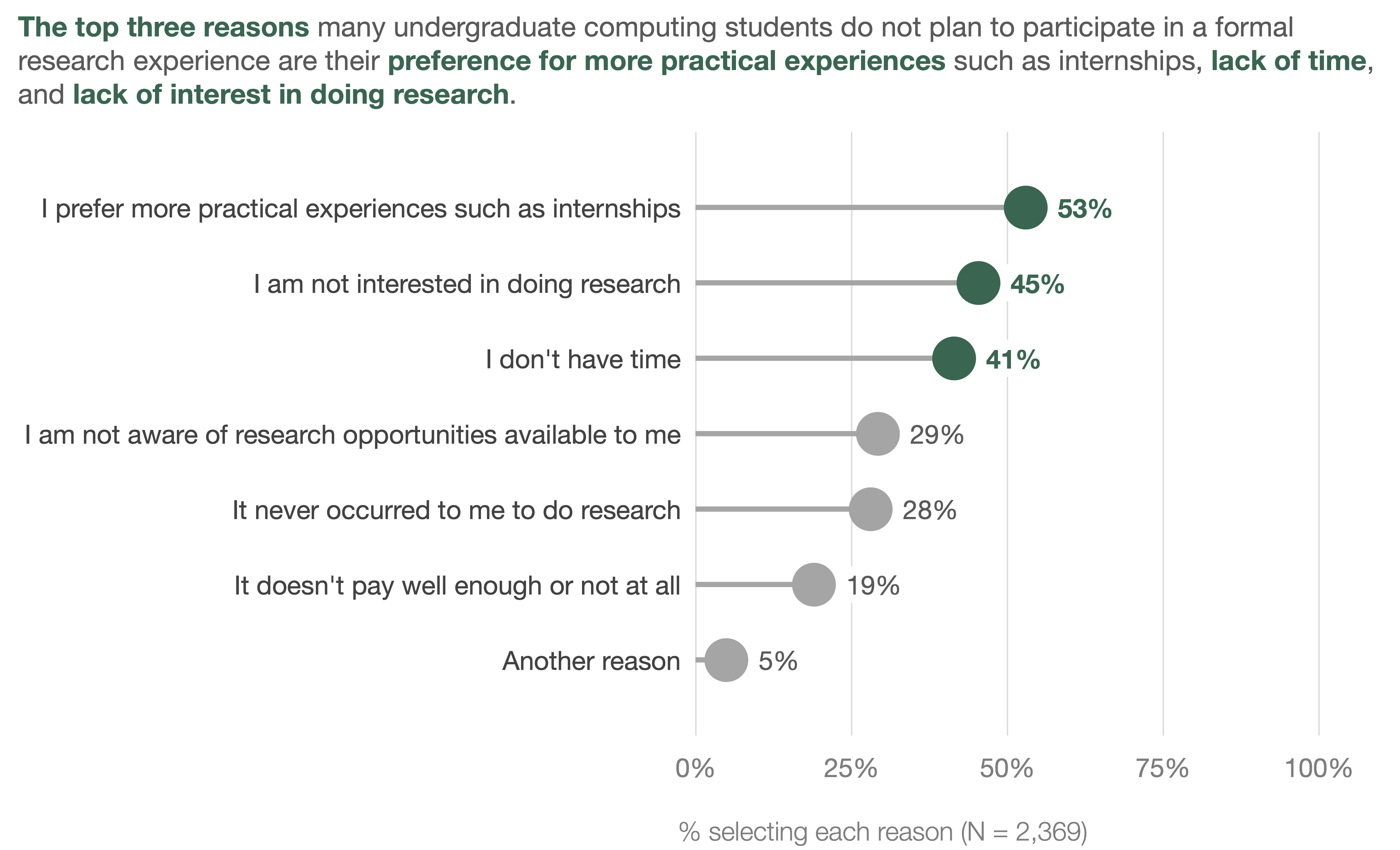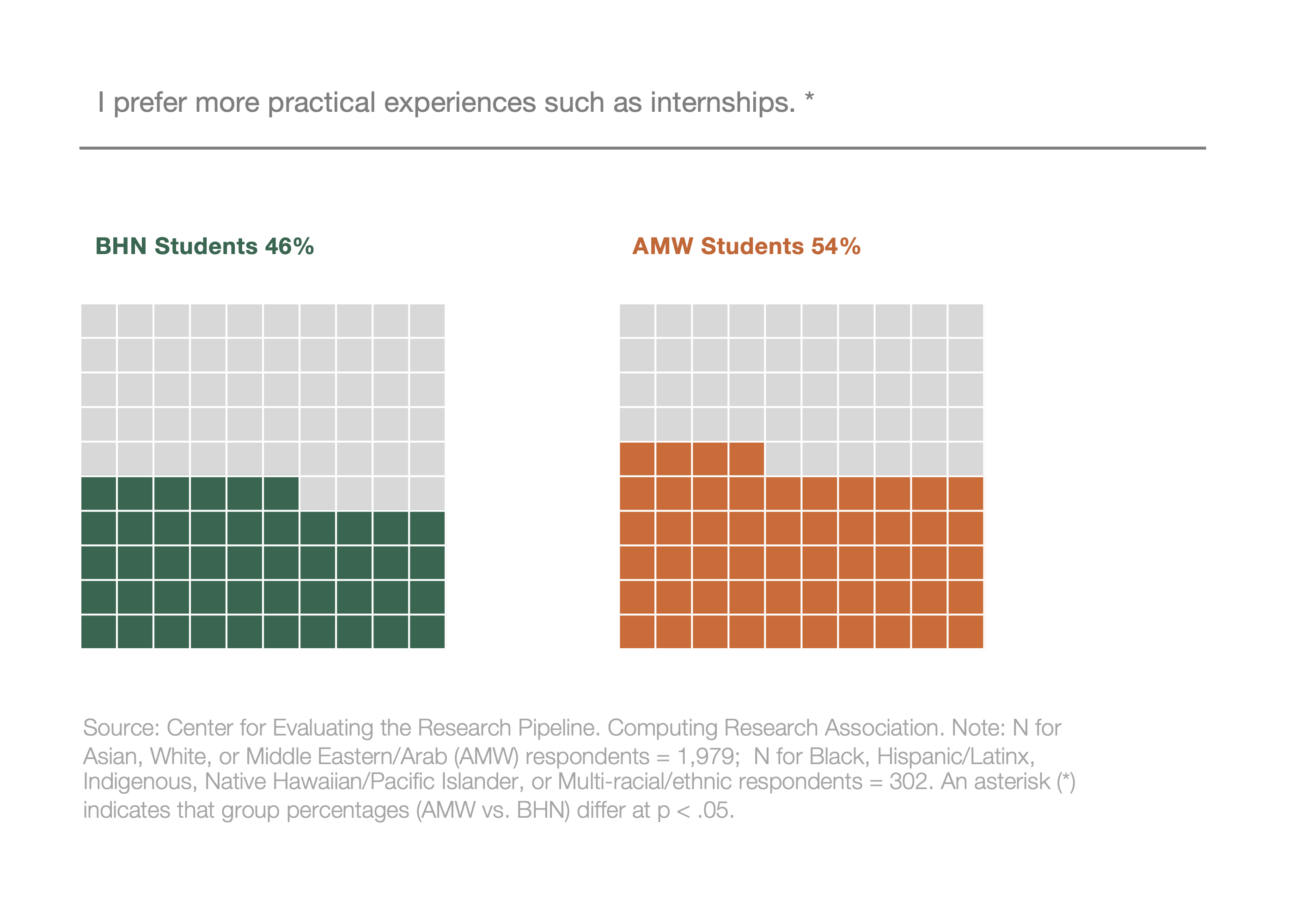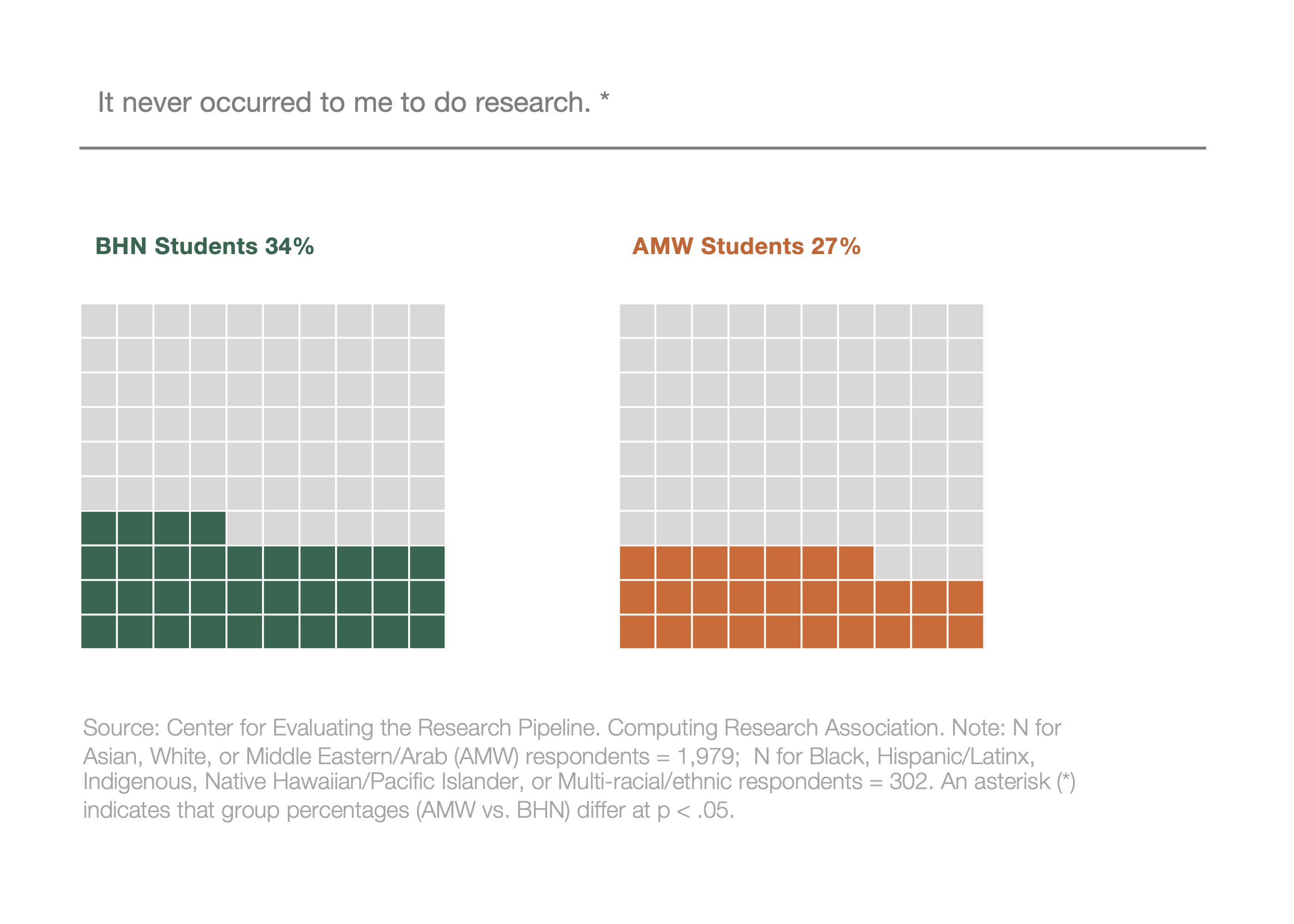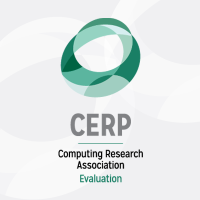Infographic: Why Don’t Certain Students Participate in Formal Research Experiences?
By Ama Nyame-Mensah, Senior Research Associate, CERP
Participating in undergraduate research experiences can be highly beneficial for computing students, particularly those who have historically been excluded from or marginalized in computing fields. These experiences can help students gain confidence in their abilities, develop new skills, explore their interests, and persist in their degree programs (Alvarado, Villazon, & Tamer, 2019; Nyame-Mensah, Tamer, & Stout, 2015; Russell, Hancock, & McCullough, 2007; Tamer & Stout, 2016). Despite the benefits of these experiential learning opportunities, many students opt not to participate in formal research opportunities during their college careers.
To better understand this phenomenon, the Center for Evaluating the Research Pipeline (CERP) recently surveyed 2,369 undergraduate students majoring in a computing-related field who have not and do not intend to participate in a formal research experience. CERP asked survey participants to select up to three reasons from a list of seven that best explain why they do not plan to participate in a formal research experience.

After summarizing all the responses descriptively, the participants were categorized into two groups: Asian, White, or Middle Eastern/Arab respondents (AMW; N = 1,979) and Black, Hispanic/Latinx, Indigenous, Native Hawaiian/Pacific Islander, or Multi-racial/ethnic respondents (BHN; N = 390). CERP then assessed whether BHN and AMW participants were equally likely to report each reason.
The findings of this analysis showed that students reported three main reasons why they do not intend to participate in a formal research experience:
- A preference for more practical experiences such as an internship,
- A lack of time, and
- Lack of interest in doing research.

When responses were compared by the two subgroups, the results showed that BHN and AWM respondents were equally likely to report each reason, with two exceptions:
Students identifying as Asian, Middle Eastern, or White were more likely to than their BHN peers to report that they preferred more practical experiences, such as internships, than engaging in a formal research experience (BHN: 46%, AMW: 54%; p < 0.05).
On the other hand, Black, Hispanic/Latinx, Indigenous, Native Hawaiian/Pacific Islander, or Multi-racial/ethnic students were more likely than their AMW counterparts to report that they did not plan to participate in a formal research experience because it had never occurred to them to do research during their college studies (BHN: 34%, AMW: 27%; p < 0.05).

The results of this analysis have practical implications for faculty mentors, university departments/institutions, and affiliates who facilitate undergraduate research experiences/programs. Below are several recommendations that can be drawn from the analysis:
- Increase and better publicize research opportunities for students, especially those historically underrepresented in computing.
- Educate students about the applicability of computing research (e.g., develop / lead projects that address significant, relevant problems of interest).
- Encourage students to follow their curiosity by implementing simple, small research activities about topics they are interested in.
Notes:
The survey data analyzed for this infographic were collected by the Center for Evaluating the Research Pipeline via the Data Buddies Project. The sample includes 1,979 Asian, White, or Middle Eastern/Arab and 302 Black, Hispanic/Latinx, Indigenous, Native Hawaiian/Pacific Islander, or Multi-racial/ethnic respondents. All survey participants indicated they were declared computing majors and had not participated in a research opportunity where they worked closely with a mentor or research advisor.
The statistical analysis included in this infographic was conducted using a two-proportion comparison test. An asterisk (*) in the graphic indicates that group percentages differ at p < .05. The graphic and analysis for this work were prepared by Dr. Ama Nyame-Mensah, Senior Research Associate.
This analysis is brought to you by the CRA’s Center for Evaluating the Research Pipeline (CERP). CERP provides social science research and comparative evaluation for the computing community. Subscribe to the CERP newsletter. Subscribe to the CERP newsletter here. Check out CERP’s activities and find out how to engage on CERP’s website.









